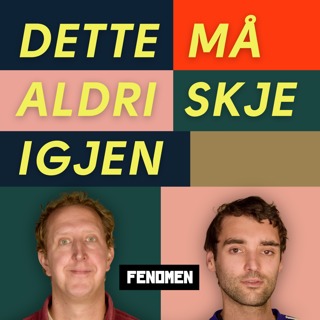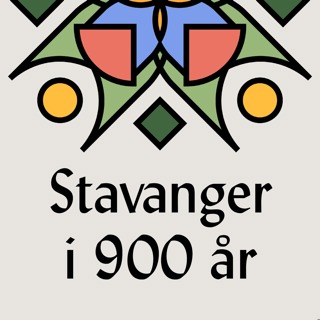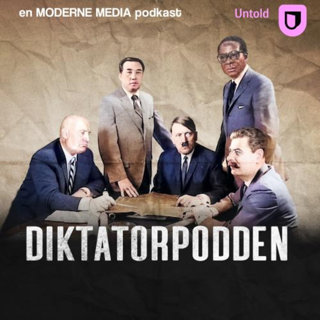
Ancient Afghanistan: The Land of a Thousand Cities
Situated north of the Hindu Kush and south of the Oxus (Amu Darya) River, the history of the ancient region of Bactria is rich and diverse. From the Oxus Civilisation that flourished in the Bronze Age to the Persian Empire, Alexander the Great, the Greco-Bactrians and the Kushans.In this podcast Tristan chats to David Adams, Australian photo journalist and documentary film maker, who has been fortunate enough to explore many of the archaeological sites of Bactria. From the 'City of Lady Moon' to the whereabouts of Bactra, 'Mother of All Cities', join David and Tristan as they discuss some of the most extraordinary ancient sites in the world.Arcadia Expeditions: https://www.arcadiaexpeditions.com/ Hosted on Acast. See acast.com/privacy for more information.
13 Mai 202151min

The Rise of Olympia
Forget the Games, ancient Olympia’s importance stretched much further than simply being the birthplace of its namesake sporting festival. Boasting hundreds of years of history, at its height this critical sanctuary was home to some of the most stunning art and architecture in the ancient world. Its cultural history is astonishing, known about by scholars thanks to both an extraordinary amount of archaeology surviving and several vital ancient literary accounts. In this second episode of our mini-series on ancient Olympia, Professor Judy Barringer from the University of Edinburgh shines a light on Olympia’s early history and how the site rose to become one of the most important religious centres in the ancient Greek World. Judy is the author of Olympia: A Cultural History. Hosted on Acast. See acast.com/privacy for more information.
11 Mai 202126min

How the Romans Treated Eye Infections
Traditionally believed to be ‘windows to the soul’, the health of eyes in the Roman Empire could be compromised by lamentable hygiene practices, unclean public baths and dusty roads. But without modern medical remedies, how did the Romans look after their sight? Dr Nick Summerton is a practicing doctor and author of ‘Greco-Roman Medicine and What it Can Teach Us Today’, published by Pen & Sword. He came back on the show to discuss eye care in Ancient Rome: the tools, practitioners and processes. Hosted on Acast. See acast.com/privacy for more information.
9 Mai 202125min

How Corinth Became Christian
Occupied since around 3000 BC, the Ancient city of Corinth is not unique in its transition from a Pagan, Greco-Roman state to a Christian one. What makes it stand out, however, is the incredible evidence that allows us to track this city’s journey throughout this time period, in literature, architecture and art. In this episode, Dr. Amelia Brown outlines Corinth’s administration and its move towards Christianity. She also highlights the incredible evidence of Pausanias, a Greek travel writer and geographer of the second century AD who lived in the time of the Roman emperors. Amelia is a Senior Lecturer in Greek History & Language at the University of Queensland, Australia. Hosted on Acast. See acast.com/privacy for more information.
6 Mai 202145min

The Truth About The Huns
The Huns! The name of this ancient people triggers a multiplicity of responses and evokes a number of images (nearly all of them negative). They have been portrayed as a savage people, who contributed little to world history. But is this really the case? In this podcast, Tristan was joined by Professor Hyun Jin Kim to talk about the emergence of the Huns in the west in the late 4th century, and the striking geopolitical changes that their rapid expansion brought about. Hyun Jin dismantles the portrayal that all the Huns did was destroy and plunder and highlights the remarkable structure of this ancient empire. The first unified empire in Europe beyond Rome’s borders.Hyun Jin is a Professor in Classics at the University of Melbourne, Australia. He is the author of The Huns, published by Routledge in 2016. Hosted on Acast. See acast.com/privacy for more information.
2 Mai 202144min

The Olympic Games
The most famous sporting event in the world is upon us, so it's only right that we consider what do we know about the ancient origins of the games in Olympia, ancient Greece? Even back then it was absolutely central to everybody's imagination about what a sporting event should be. Ancient history legend and author of ‘Olympia: The Story of the Ancient Olympic Games’ Robin Waterfield joins Tristan Hughes to discuss the Olympic Games in antiquity. The Ancients is a History Hit podcast Hosted on Acast. See acast.com/privacy for more information.
2 Mai 202143min

Cicero’s Fight for the Roman Republic
Caesar Octavian, Mark Antony, Decimus Brutus and Cicero: the Battle of Mutina, April 43 BC, was a clash of giants. It also became the beginning of the end for one of Ancient Rome’s greatest orators, Cicero. For this episode, Steele Brand came back to take Tristan through the battle, and to explain how this event featured in Cicero's fall and represents the renowned orator's last great gamble. Steele is Assistant Professor of History at The King’s College in New York City. He has written about the Battle of Mutina in his book, ‘Killing for the Republic: Citizen-Soldiers and the Roman Way of War’. Hosted on Acast. See acast.com/privacy for more information.
25 Apr 20211h 1min

Roman Prisoners of War
We know all about the battles of the Roman Empire: the opposing sides, their weapons and incentives. But if history is written by the winners, what happened if you lost? In this episode, Dr Jo Ball, battlefield archaeologist at the University of Liverpool, helps to fill in this gap. Jo takes us through the options of the victorious army; to release, kill or capture; and then discusses the treatment of those who fell into this last category. Listen as Tristan and Jo explore the experiences of prisoners of war in Ancient Rome, how this might differ if those taken were also Roman, and how we know anything about them at all. Hosted on Acast. See acast.com/privacy for more information.
22 Apr 202139min





















